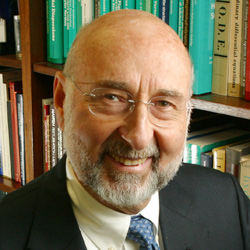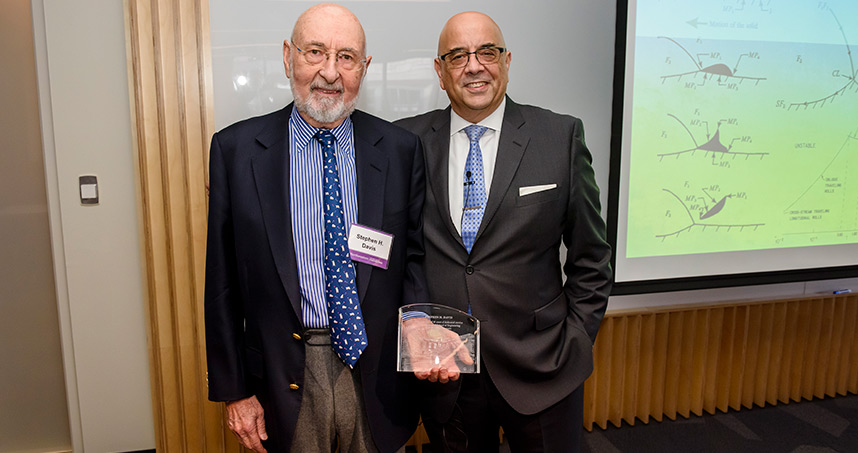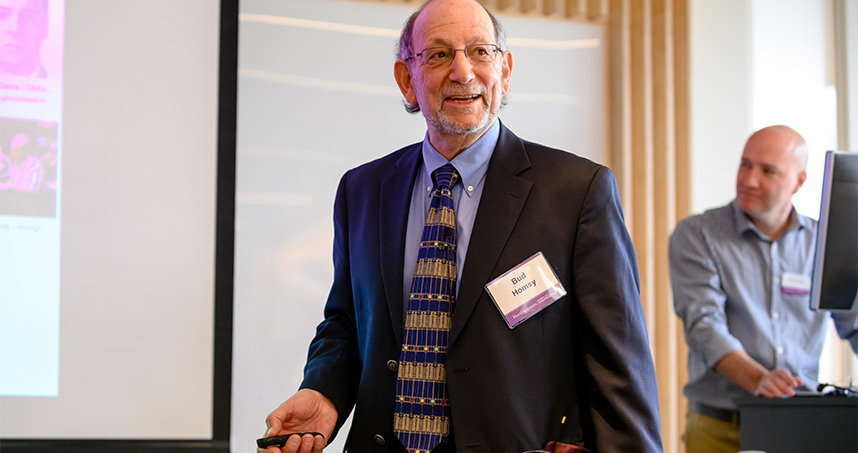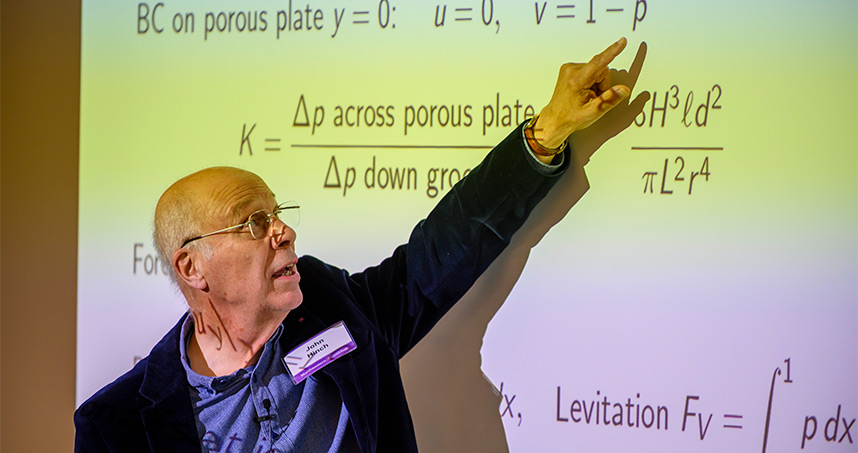Northwestern Engineering Hosts Stephen H. Davis Symposium
International fluid dynamics experts conducted scholarly lectures
 To honor Stephen Davis’s many contributions to fluid dynamics, Northwestern Engineering held a daylong symposium in his honor, featuring lectures by four international fluid mechanics and materials science experts.
To honor Stephen Davis’s many contributions to fluid dynamics, Northwestern Engineering held a daylong symposium in his honor, featuring lectures by four international fluid mechanics and materials science experts.
The event drew a capacity crowd of more than 70 people on October 15 at the Ford Motor Company Engineering Design Center, celebrating Davis’s many fundamental and impactful contributions to the field.
Davis, the McCormick Institute Professor and Walter P. Murphy Professor of Applied Mathematics and (by courtesy) professor of mechanical engineering and chemical and biological engineering in the McCormick School of Engineering, will retire in December.
“Steve’s work embodies precision and elegance,” said Dean Julio M. Ottino. “We are grateful for his many contributions to Northwestern Engineering and the field at large.”
Davis’s research career focused on interfacial dynamics and stability. His work earned election to the National Academy of Engineering, the National Academy of Sciences, and the American Academy of Arts and Sciences. He joined Northwestern Engineering in 1979 and previously taught at Imperial College London and Johns Hopkins University and served as a mathematician at RAND Corporation.
“For 40 years, Steve has been a leader in our department and in the academic community,” said David Chopp, chair and professor of engineering sciences and applied mathematics. “This event is a testament to his impact on our peers at institutions around the world.”
The event began with G.M. “Bud” Homsy, formerly at Stanford and currently affiliate professor of mechanical engineering at the University of Washington, who presented “Some Interfacial Flow Problems,” discussing his work that was inspired and influenced by Davis.
John Hinch, professor of fluid dynamics at the University of Cambridge, then gave the presentation, “Levitation and Locomotion on an Air-table of Plates with Herringbone Grooves,” discussing a model of air flow down a long channel with pressure-controlled influx across the lower boundary: lubrication theory with inertia or boundary layers without an outer flow. Limiting cases were considered of low and high Reynolds numbers, and of small and large pressure drop down the channel compared with the pressure drop across the porous plate; all were tested against numerical solutions. The levitation and locomotion forces were calculated with a relatively simple prediction for the locomotive acceleration, which fitted the experimental data with plausible excuses.
In the afternoon, Parviz Moin, founding director of the Center for Turbulence Research and the Institute for Computational and Mathematical Engineering at Stanford University, presented “Probing Turbulence Physics Using Numerical Simulation Databases - A Case Study in Predictive Science.“ He provided a review of the current status of fundamental research on the structure of wall-bounded turbulent flows with particular emphasis on the role played by large scale numerical simulations in conducting controlled experiments of discovery, as well as the insights gained as a result.
The final presentation was “Segregation in Multicomponent Droplet Evaporation” with Detlef Lohse, professor of physics of fluids at the University of Twente. He incited lively discussion with conference attendees as he explained phenomena various phenomena such as a surprising bouncing droplet effect as it moves down a concentration gradient, evaporation-triggered segregation due to either weak solutal Marangoni flow or gravitational effects, and the evaporation of a ternary liquid droplet, which can lead to spontaneous nucleation of droplets consisting of a new phase.
The lectures were followed by a reception honoring Davis. In future years, Northwestern Engineering will host a lecture in Davis’s honor annually.



